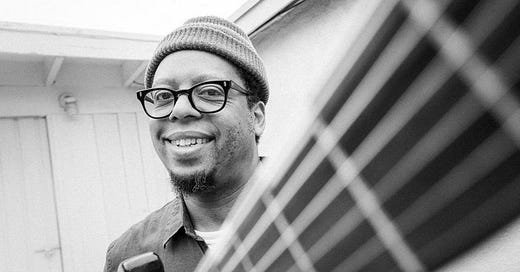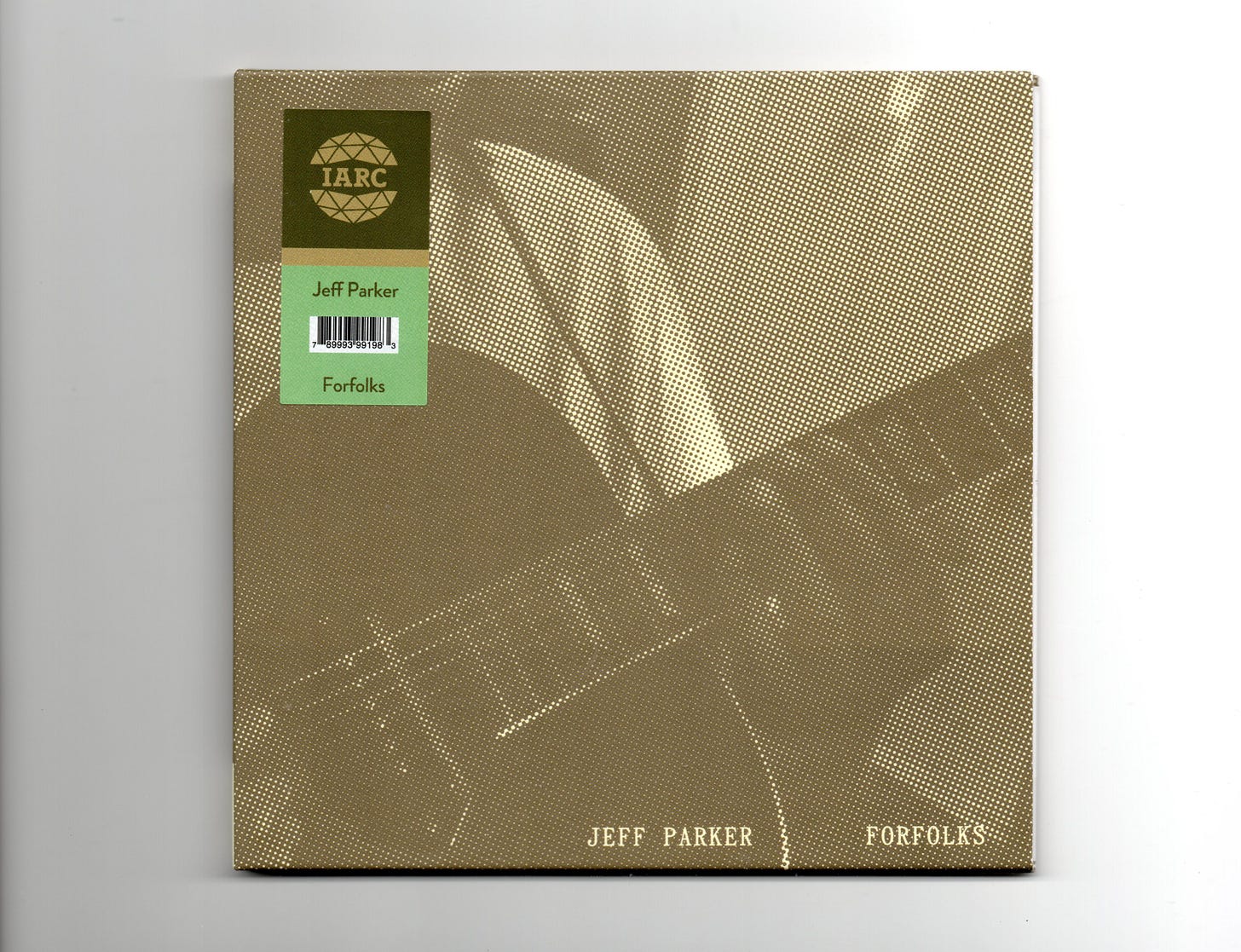Neuguitars 2024 #37: A Possible Evolution of Jazz Guitar: Jeff Parker and "Forfolks"
Nonesuch Records, 2021
I am late—a conscious and partly culpable delay—in listening to and talking about Jeff Parker. Yet, this delay has the advantage of making the anticipation before discovery even more intense, like arriving at a landscape that had been hidden around a bend in the road. Perhaps, as sometimes happens, what truly strikes us waits for the right moment to reveal itself, as if time itself requires a precise alignment.
Jeff Parker: guitarist, composer, producer. A man, a figure, but above all, a horizon of sounds that expand and contract, mutate and renew themselves, always with the grace of someone possessing a rare awareness. Originally from Bridgeport, Chicago, Parker does not belong to a single musical domain. He traverses jazz, rock, electronics, and the shapeless territory of experimentation, weaving sonic threads that seem to emerge from an invisible loom.
His name inevitably evokes the Tortoise, the band that redefined the boundaries of post-rock, but his creative universe is far more expansive, dotted with solo works, collaborations, and ventures into the most diverse landscapes of contemporary music. I've always thought of Jeff Parker as, in some way, a possible evolution of jazz guitar: the ideal heir to Jim Hall, yet with a spirit that embraces not only the past but also the future.
His music is balance, a continuous dialogue between improvisation and composition, between acoustic and electronic, between tradition and innovation. He possesses the precision of one who knows the rules and the freedom of one who knows how to break them, blending the legacies of jazz with funk, soul, free jazz, and even hip-hop.
I stumbled upon Forfolks almost by chance, guided by a recommendation from Mary Halvorson in a video where she listed her favorite albums.
I bought it on trust, and I immediately found myself immersed in a work that is not just music but a place, a moment, a thought.
Forfolks is a solo album in which Parker weaves loops, overdubs, and guitar touches that seem to evoke meditative, repetitive landscapes—yet they are never monotonous. Eight tracks, some original, others reinterpretations, like windows into an inner world that gradually reveals itself.
There’s “Suffolk,” with its nocturnal breath, built on delicate repetitions and a silence that feels fuller than any sound. There’s “My Ideal,” which takes a jazz standard and transforms it into something intimate and personal, as if the notes themselves had absorbed the artist’s memories. And then there’s Four Folks, the heart of the album, whose simplicity unfolds as richly as an enigma. La Jetée is a temporal distortion, a play of layers that challenges perception, while Excess Success delivers a groove that creeps in slowly, almost stealthily.
Forfolks doesn’t reveal itself easily. Like a relic found in an old trunk, it seems to come from an undefined era: echoes of the past and prophecies of the future, a suspended bridge between the classic and the contemporary.
Loops blend with improvisations, ambient sound becomes an integral part of the music, as if Parker is conversing not only with his instrument but with the environment itself. Each track is a microcosm of details, choices, and nuances that reward the attentive and curious listener.
Forfolks is an album that defies the linearity of time. It is a sonic artifact that could sit among a stack of jazz classics, confusing listeners with its ability to be both contemporary and a relic. Every note, every loop, seems chosen with the precision of a gardener pruning to enhance the natural shape of things. There’s a subtle interplay between subtraction and fullness, between what is said and what remains suspended.
It is a work of subtraction, a reflection of what contemplative music in our time might be. Parker plays, immerses himself, explores, and shares. And we, on this side of the sound, find ourselves exploring with him, driven by the feeling that perhaps there is still much left to discover. Parker is a sound architect: with every touch of his strings, he seems to sketch a new fragment of a map where jazz, rock, electronic music, and experimentation converge like currents in a boundless sea.
This album doesn’t aim to dazzle—there are no virtuosic displays, no dramatic exclamations. It is a conversation, a dialogue with the listener and with the space that surrounds it. Like certain works of fiction, Forfolks isn’t meant to be rushed but requires slow attention, a gaze that lingers on the details and lets them resonate.
Jeff Parker, with his ability to create musical landscapes that are both personal and universal, offers us a journey—a journey that traverses time, space, and emotion.






Thanks for the discovery 🙏🏼 I didn’t know him